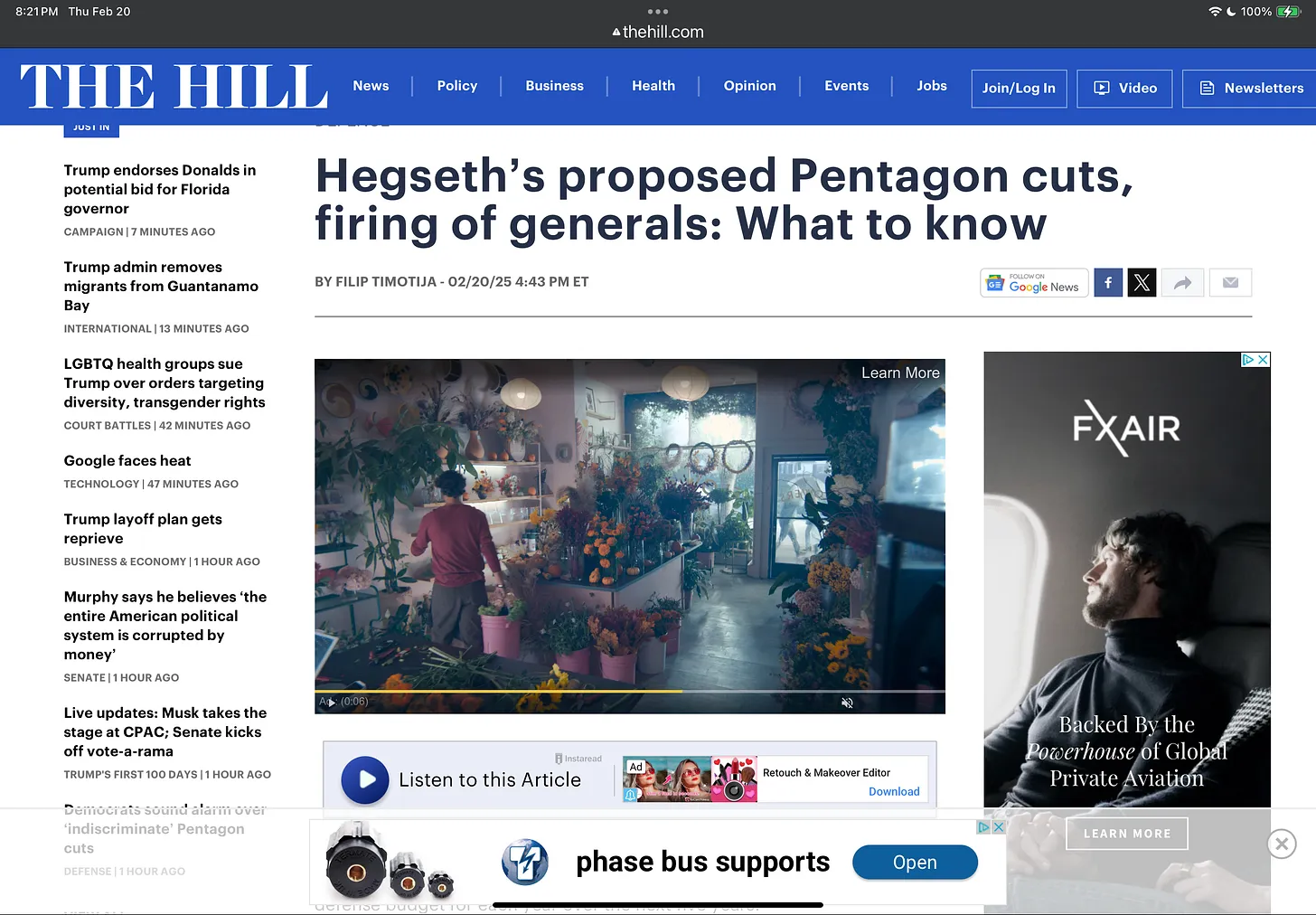
Football coaches who lose are fired.
Basketball coaches who lose are fired.
Baseball coaches who lose are fired.
CEOs of corporations that preside over losing quarters are fired.
But…
US generals who lose wars and lack integrity are promoted and 80% of 4-star generals are rewarded with lucrative executive positions at military industrial complex corporations.
This clearly defies the logic of the prior examples. So, how exactly does this happen?
One plausible explanation may be ‘Toxic Loyalty’
So, what exactly is ‘Toxic Loyalty?’
Fastcompany.com says about ‘Toxic Loyalty’: “Blind loyalty to bad leaders and protected employees irrationally serves the ego—and has disastrous implications on company culture and the bottom line.”1 The article further describes ‘sacred cows’ beyond reproach that are in one of 3 categories:
1. Individuals who have been with the organization for a long time
2. Individuals who played a key part in the organization’s success at some point
3. Individuals who are close friends or family members
Familywealthreport.com describes ‘Toxic Loyalty’ as “too much loyalty” or “extreme loyalty” that can lead to disastrous consequences for an organization. Specifically, such loyalty can spawn the following untoward outcomes2:
1. Inefficiency
2. Stifled innovation
3. Lack of growth and improvement
4. Resentment
5. Conflict avoidance.
6. Lack of objectivity and diversity (of ideas)
7. Family and financial strain
8. Lack of accountability
9. Succession challenges
10. Decline in reputation
Nearly 3 years after the shameful conclusion of Afghanistan, the debacle has been all but expunged from the talking points of the US military, as if it never happened. This remarkable trick by active US generals required the support of four entities to succeed:
Politicians
US military members
US public
Veterans and service academy graduates
This is all the more remarkable given the after-action review of Vietnam by Robert McNamara in his 1995 memoir In Retrospect that alphahistory.com discussed on its website:
“I believe we could and should have withdrawn from South Vietnam either in late 1963 amid the turmoil following Diem’s assassination or in late 1964 or early 1965 in the face of increasing political and military weakness in South Vietnam. We misjudged the geopolitical intentions of our adversaries (in this case, North Vietnam and the Viet Cong, supported by China and the Soviet Union), and we exaggerated the dangers to the United States of their actions. We viewed the people and leaders of South Vietnam in terms of our own experience. We saw in them a thirst for—and a determination to fight for—freedom and democracy. We totally misjudged the political forces within the country. We underestimated the power of nationalism to motivate a people (in this case, the North Vietnamese and Viet Cong) to fight and die for their beliefs and values. Our misjudgments of friend and foe alike reflected our profound ignorance of Vietnam’s history, culture, and politics, plus the personalities and habits of its leaders.”3
Shockingly, it is almost possible to substitute Afghanistan and the Taliban in McNamara’s excerpt, and it would adequately describe the nearly identical failure in Afghanistan with US generals still at the helm. In 40 years it appears no lessons were learned and the same general officer culture has gotten away with failure for a second time in US history.
‘Toxic Loyalty’ is a topic that should be explored much more deeply. While DEI, covid mandates, and other contemporary contentious issues in the military are hotly debated, the true source of US military failure likely lies with its leadership and not any particular issue. Until this is addressed and acted on, further failures will undoubtedly befall the US military. America and the world deserve better.
- https://www.fastcompany.com/90908438/how-toxic-loyalty-can-tank-your-company
- https://www.familywealthreport.com/article.php?id=198857
- https://alphahistory.com/vietnamwar/robert-mcnamara-us-failures-1995/
























